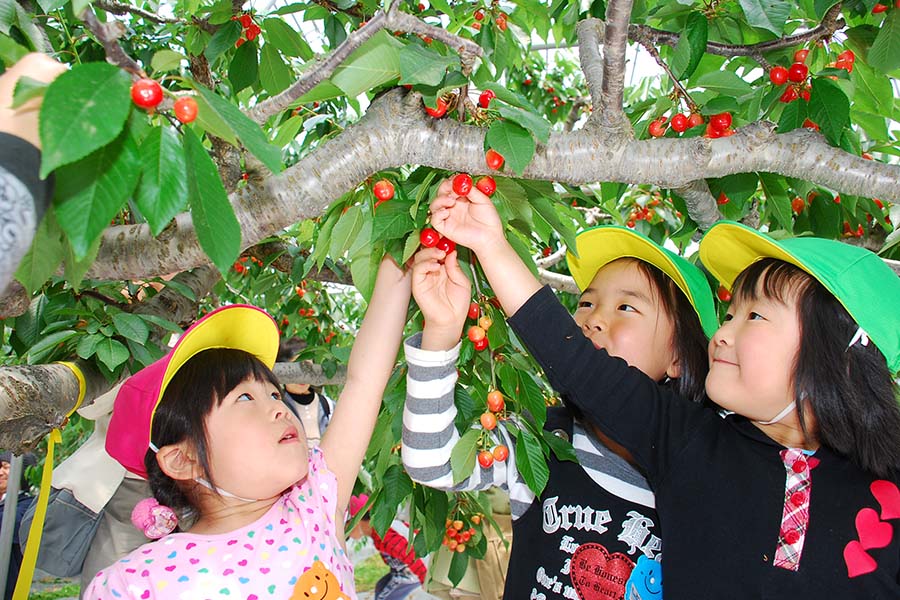After several years of laboratory studies, a research team from INRAE Sophia Antipolis recently released Ganaspis kimorum in the Vaucluse region to combat the Drosophila suzukii, a parasite causing severe damage to the cherry industry. These parasitoid wasps, natural enemies of the Asian fruit fly, offer an ecological alternative to pesticides.
The Drosophila suzukii, native to Asia and identified in France in 2010, reproduces rapidly and lays eggs in fruit, making it unfit for consumption. This fly is a major scourge for tree growers, prompting the European Commission to ban the use of chemical treatments in 2022 for health reasons.
It is at the foot of Mont Ventoux, on the outskirts of the village of Malaucène, that a research team from INRAE at the Institut Sophia Agrobiotech started in early May to release Ganaspis kimorum. These tiny wasps, one millimeter long and native to Japan, lay eggs in D. suzukii larvae. During their development, G. kimorum larvae consume D. suzukii larvae, effectively and sustainably reducing the population.
After several years of laboratory experiments on G. kimorum at Sophia Antipolis, the parasitoid of D. suzukii in its native environment has proven to be a good candidate to control D. suzukii in an environmentally friendly manner.
Nicolas Borowiec, an engineer at INRAE specializing in biological control through acclimatization and project manager, emphasizes that "this parasitoid was selected because it effectively and specifically attacks D. suzukii in ripening fruits, thereby limiting undesirable effects."
In the presence of the senator of Vaucluse, the mayors of Malaucène and Venasque, Mylène Ogliastro, head of the Plant Health and Environment department at INRAE, and Frédéric Carlin, president of the INRAE Provence-Alpes-Côte d'Azur Center, researchers released 500 females of G. kimorum in the cherry orchards of Malaucène.
They will monitor this parasitoid introduction for several years to evaluate the effectiveness of this biocontrol strategy in controlling D. suzukii without the need for phytosanitary products. Additional releases of parasitoids are planned in southeastern France and other regions where the pest is present.
From Ganaspis cf. brasiliensis to Ganaspis kimorum
Results from numerous biological, ecological, and molecular characterization studies conducted in recent years unequivocally demonstrate the presence of several differentiated taxa under the same name "Ganaspis cf. brasiliensis". Within this complex, molecular group 1 (= G. cf. brasiliensis G1) is the most ecologically and physiologically specific to D. suzukii. This strain has been authorized for introduction into the environment in several countries (France, Italy, United States, Switzerland).
A recent publication by taxonomists specializing in Figitidae (the family to which the genus Ganaspis belongs) describes some of these groups as new species. This is the case of Ganaspis cf. brasiliensis G1, which thus becomes Ganaspis kimorum (Sosa-Calvo et al 2024). Journal of Hymenoptera Research. doi:10.3897/jhr.97.118567).
Source: INRAE
Image: INRAE
Cherry Times - All rights reserved










